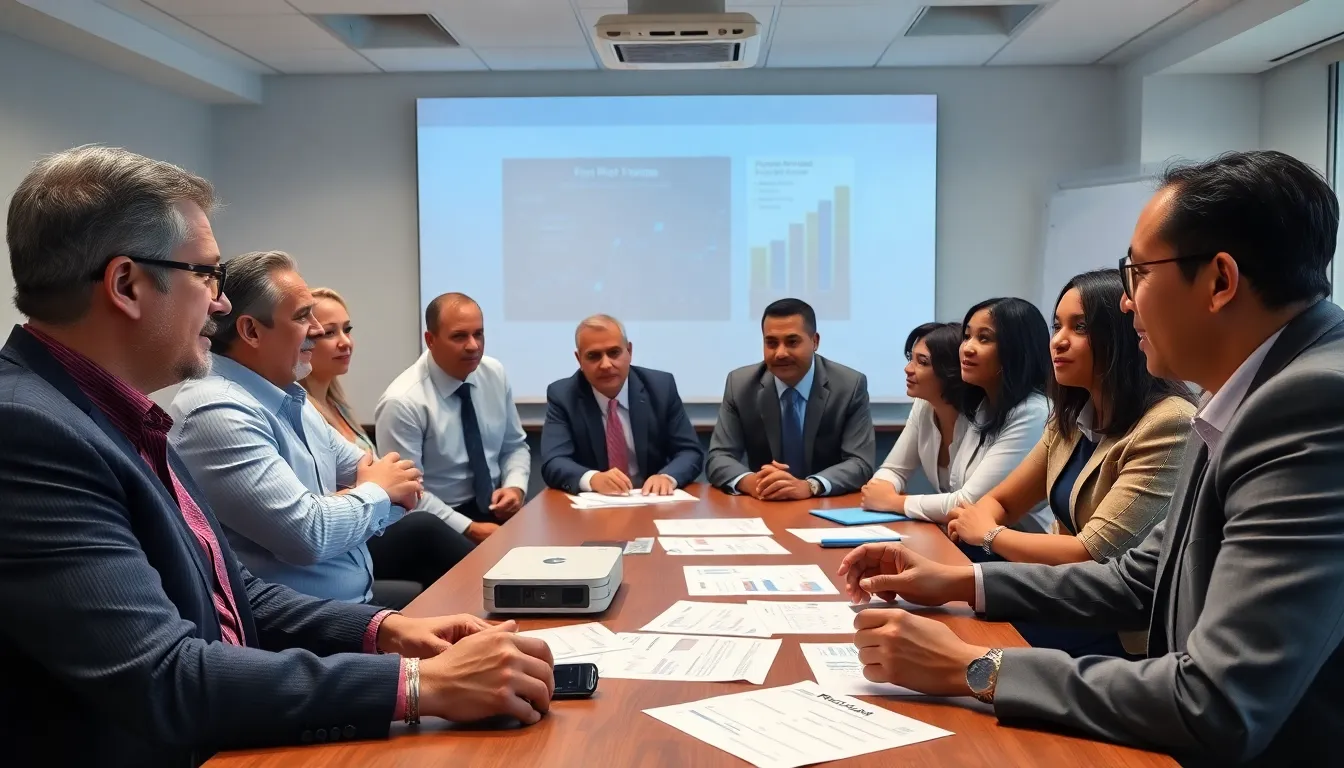Table of Contents
ToggleRetirement might seem like a distant dream, but it’s never too early to start planning for that golden age of relaxation. Enter the Retirement Planning University, where the curriculum is all about turning those retirement fantasies into a reality. Imagine trading in your office cubicle for a hammock on a sunny beach—sounds dreamy, right?
But before you dive headfirst into that retirement pool, you need a solid plan. This isn’t just about counting down the days until you can finally binge-watch your favorite shows without guilt. It’s about understanding your finances, investments, and how to make your money work as hard as you did. With the right guidance, retirement can be less “what do I do now?” and more “where’s my next adventure?” Let’s explore how this unique university can help pave the way to a stress-free retirement.
Overview of Retirement Planning University
Retirement Planning University serves as a resource for individuals looking to secure their financial futures. It offers structured learning to help navigate the complexities of retirement.
What Is Retirement Planning University?
Retirement Planning University is an educational platform designed to teach essential skills for retirement planning. Its courses cover diverse topics, including investment strategies, expense management, and tax implications. Participants engage with experienced instructors who share valuable insights into long-term planning. Additionally, the program emphasizes personalized financial goals to align with individual aspirations.
Importance of Financial Education
Financial education plays a crucial role in successful retirement planning. Knowledge equips individuals to make informed decisions about savings and investments. A well-rounded education helps participants understand fluctuating markets, risks, and opportunities. Furthermore, grasping financial concepts fosters confidence in managing retirement portfolios. Prioritizing education in finance sets a foundation for a secure and satisfying retirement experience. It also reduces reliance on external advisors, empowering individuals to take control of their financial destinies.
Curriculum Offered

The curriculum at Retirement Planning University provides a comprehensive approach to financial education. Participants gain valuable knowledge through core and elective courses that cover essential aspects of successful retirement planning.
Core Courses
Core courses focus on critical topics that lay the foundation for retirement planning. Investment strategies encompass diverse approaches, including stocks, bonds, and real estate. Expense management offers techniques to budget effectively for retirement living. Tax implications courses educate individuals on various tax strategies that optimize savings. Students learn to navigate Social Security benefits and understand their retirement options. With practical training, these courses empower participants to make informed financial decisions.
Elective Courses
Elective courses allow participants to tailor their learning experience based on individual interests. Topics include estate planning, ensuring asset protection and wealth transfer strategies. Healthcare and long-term care planning address important considerations for maintaining health in retirement. Individuals may explore sustainable investing, a growing area focused on ethical investing practices. Personal finance workshops provide hands-on experiences to enhance financial literacy. Each elective enriches participants’ knowledge and prepares them for a confident retirement journey.
Benefits of Attending
Attending Retirement Planning University offers significant advantages for individuals preparing for their financial futures. Participants gain access to essential skills and knowledge critical for effective retirement planning.
Knowledge Acquisition
Acquiring knowledge at Retirement Planning University empowers individuals to navigate retirement challenges confidently. Each course provides in-depth insights into investment strategies, which enhance decision-making capabilities. Understanding expense management helps participants create realistic budgets for their retirement. Learning about tax implications enables them to strategize effectively and maximize savings. Classes on Social Security benefits ensure clarity regarding maximizing entitlements. Equipped with this education, individuals feel prepared to manage their finances independently.
Networking Opportunities
Networking opportunities abound at Retirement Planning University, connecting participants with like-minded individuals. Each course fosters collaboration, allowing students to share experiences and strategies. Engaging with instructors opens doors to expert advice and mentorship. Networking facilitates the formation of valuable relationships, benefiting future financial decisions. Many alumni stay in touch, creating a supportive community for ongoing advice and encouragement. These connections may lead to partnerships or referrals, further enriching participants’ retirement planning journey.
Student Experiences
Participants in Retirement Planning University share valuable insights about their learning journeys. Real-world applications of financial principles highlight the program’s impact.
Testimonials
“Retirement Planning University transformed my approach to finances,” says a recent graduate. Gaining confidence in investment strategies significantly improved her decision-making. “The instructors provide real-life examples that make complex topics understandable,” he adds, emphasizing the practical nature of the courses. Classmates often become lifelong connections, offering a support network that extends beyond graduation. Others appreciate the structured curriculum, which simplifies a daunting subject.
Outcomes After Graduation
Graduates of Retirement Planning University experience substantial changes in financial management. Many report a heightened ability to create and execute personalized retirement plans confidently. Knowing how to navigate investments and tax implications leads to smarter financial choices. Some graduates even find themselves taking on advisory roles for peers and family, sharing their knowledge. Networking opportunities during the program often result in collaborative projects that enhance learning further. Overall, students feel well-equipped to achieve financial goals independently.
Challenges in Retirement Planning Education
Multiple challenges exist in retirement planning education, affecting accessibility and affordability for many individuals.
Accessibility Issues
Limited access frequently hinders effective retirement planning education. Geographic location often determines availability of quality programs. Online courses provide a solution; however, those without reliable internet struggle to benefit. Many older adults may also feel intimidated by technology, which leads to reduced participation in digital offerings. Additionally, language barriers can prevent non-native speakers from fully understanding course material. Adapting educational resources to cater to diverse learning needs can enhance accessibility and help bridge these gaps.
Cost Barriers
Cost remains a significant obstacle for individuals seeking retirement planning education. High tuition fees for comprehensive programs can deter participation, particularly for those on fixed incomes. Some programs offer financial aid, yet many potential students remain unaware of these options. Budget-friendly alternatives, such as community workshops or online resources, may exist but often lack depth. Investing resources in affordable educational initiatives can create inclusive opportunities for all individuals aiming to secure their financial futures.
Retirement Planning University stands out as a vital resource for anyone looking to master their financial future. By offering a structured curriculum that emphasizes essential skills and knowledge, it empowers individuals to take control of their retirement plans. Graduates leave with increased confidence and a supportive network that extends beyond the classroom.
Despite challenges in accessibility and affordability, the university’s commitment to financial education creates pathways for diverse learners. As more individuals recognize the importance of early and informed retirement planning, platforms like this will play a crucial role in shaping secure and fulfilling retirement experiences. Investing in education today ensures a brighter financial future tomorrow.






